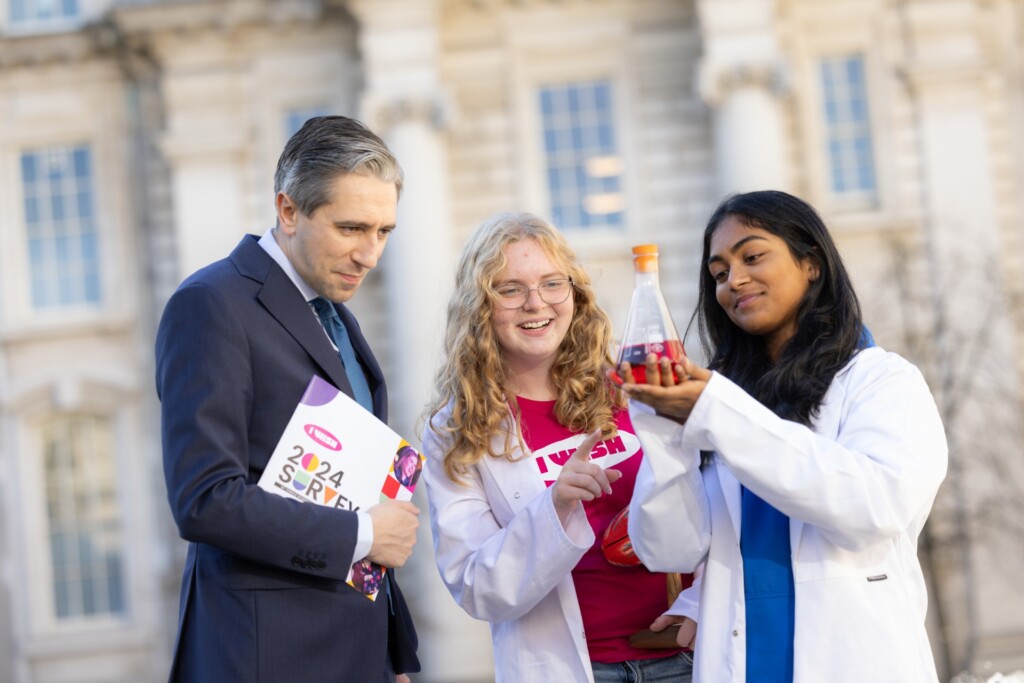The 2024 I Wish Report reveals that 60% of Irish teenage girls believe that gender inequality is the biggest barrier preventing them from pursuing careers in STEM (Science, Technology, Engineering, and Mathematics), highlighting an urgent need for more inclusive and supportive environments.
While this figure has dropped from 83% in the 2021 annual I Wish Report, it underscores that, despite some progress, systemic change is still required in both society and education to ensure equal opportunities for girls in STEM.
The I Wish 2024 Survey of Female Students’ Perspectives on STEM also reveals that 33% of teenage girls say stereotypes — such as the belief that boys are inherently better at maths, engineering, or technology — continue to discourage girls from entering STEM fields.
Moreover, only 68% of all-girls schools offer STEM subjects beyond Maths and Science, compared to 87% in mixed schools and 96% in boys’ schools. The STEM subject gender gap is most evident in subjects like engineering, where boys represent 91% of those studying engineering at second level.
The report comes as I Wish gears up for its largest-ever STEM Showcase on 6 February 2025 at the RDS Dublin.
For its 11th year, 4,000 female students from across the entire island of Ireland will attend the event, offering them the chance to connect with inspiring women from leading global companies in STEM.
Registration is now open at iwish.ie/register
Speaking on the Report, Gillian Keating, I Wish co-founder, said: “The World Economic Forum 2024 report warns that by 2025, 97 million jobs could be displaced by AI, yet only 28.2% of the current STEM workforce is female.
“We must empower girls to pursue careers in STEM to cultivate a diverse and innovative future workforce.
“We have found that from 2018 to 2022, there has been a 37% increase in girls engaging with at least one STEM subject. While this progress is encouraging, we must intensify our efforts.”
“We are advocating for a holistic, society-wide approach to tackle these challenges.
“This includes integrating stories of women in STEM into all subjects at primary level and promoting STEM-focused community projects as part of the sixth-class curriculum.
For secondary education, I Wish calls for introductions to locally based female STEM professionals, equality of access to STEM subjects across single sex and mixed schools and training to tackle gender stereotypes.”
This year’s report also reflects the success of the I Wish newly launched Primary Programme, aimed at boosting girls’ confidence in STEM from a younger age through role models and industry visits.
After participating, 100% of primary students said they felt capable of studying STEM.
In comparison, the 2024 survey found half of teenage girls lacked self-confidence in their ability in STEM subjects.
Caroline O’ Driscoll, I Wish co-founder added: “The survey findings reflect what we at I Wish have observed over the last 11 years: while girls often show confidence in their abilities at a young age, this confidence dips as they transition from tween to teen.
“This could be attributed to factors such as rising social media usage, a lack of role models, stereotypes, and unconscious gender bias.
“While early intervention in primary education is necessary — hence our expansion into a primary school programme — it is crucial we maintain a focus on the teenage stage, where confidence is particularly vulnerable.
“By intervening at this critical juncture, we can help girls retain their confidence in their abilities and view STEM as a space where they can excel, ultimately leading to a more equitable and innovative future.”
An Taoiseach Simon Harris said: “The I Wish programme is a powerful catalyst for change.
“Female role models aren’t just inspirations — they’re unlocking doors to a future where more young women can thrive in STEM fields that are crucial to Ireland’s economy.
“This report from I Wish demonstrates that early intervention works, and we must also ensure that girls remain supported through their secondary education and beyond.”
Visit www.iwish.ie/surveys/ to read the I Wish 2024 Survey Report in full.
